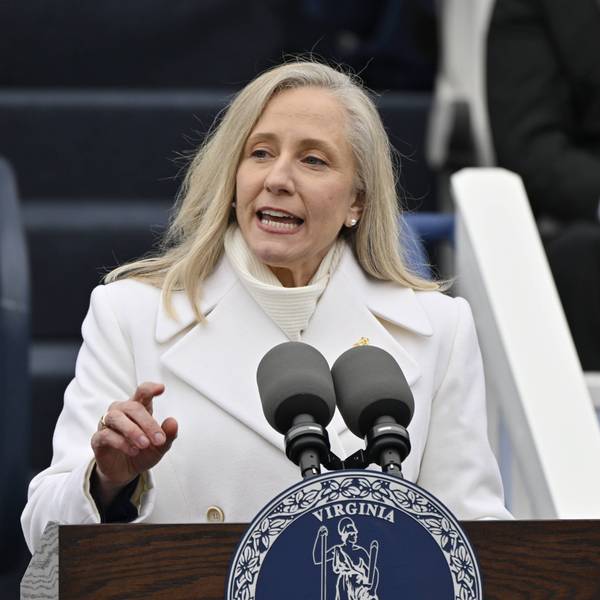Wielding signs that read "hands off our districts" and "you can pick your nose, but you can't pick your voters," hundreds of civil rights advocates, lawyers, and lawmakers rallied in the nation's capital Tuesday as the Supreme Court heard arguments in a landmark redistricting case that poses "the most serious challenge to gerrymandering in modern times."
The case under consideration--Gill v. Whitford--is the result of a lawsuit filed by Wisconsin voters and the Campaign Legal Center in 2015 alleging that Republican-drawn state district lines violated the rights of Democratic voters. In 2016, a federal court ruled in favor of the plaintiffs, arguing that the GOP's district maps amounted to "an aggressive partisan gerrymander" and ordered the lines redrawn.
Wisconsin repealed this verdict, and in May the Supreme Court temporarily blocked the lower court ruling from going into effect. A month later, the court announced it would hear the case.
The final outcome of Whitford, expected by June of next year, could either positively transform the American political system or further erode voting rights and make gerrymandering even worse. Either way, the consequences will be enormous, argues Ari Berman of Mother Jones.
"A ruling against Wisconsin would be one of the most significant victories for voting rights in decades, opening the door to many more challenges to gerrymandering across the country, in both red and blue states where maps were clearly drawn for a political advantage," Berman notes. "A ruling for Wisconsin, alternatively, would virtually guarantee many more partisan gerrymanders in the future. Republicans would claim they are denying representation to Democratic voters for partisan, not racial, reasons."
Judging by the number of people gathered outside the court building on Tuesday--many of whom arrived as early as 3:00am, sleeping bags in hand--these implications have not been lost on American voters, who polls indicate overwhelmingly support court action to end extreme partisan gerrymandering.
"We have the chance, with this case, to put power back into the hands of the people whose rights are under attack."
--Kristen Clarke, Lawyers' Committee on Civil and Human Rights
"The crowd at SCOTUS today for Gill v. Whitford is the biggest I've ever seen for a redistricting case," observed Michael Li, counsel for the Brennan Center's Democracy Program. "I think it really speaks to frustration many Americans feel about politics today."
Kristen Clark, president of the Lawyers' Committee on Civil and Human Rights, concluded in a speech in front of the Supreme Court building on Tuesday that "gerrymandering has no value in our democracy."
"We have the chance, with this case, to put power back into the hands of the people whose rights are under attack," Clarke said.
Walter Shaub, former head of the Office of Government Ethics, echoed this sentiment, concluding, "Make no mistake about it: Extreme partisan gerrymandering is corruption. It's a cancer on democracy. End it now!"




